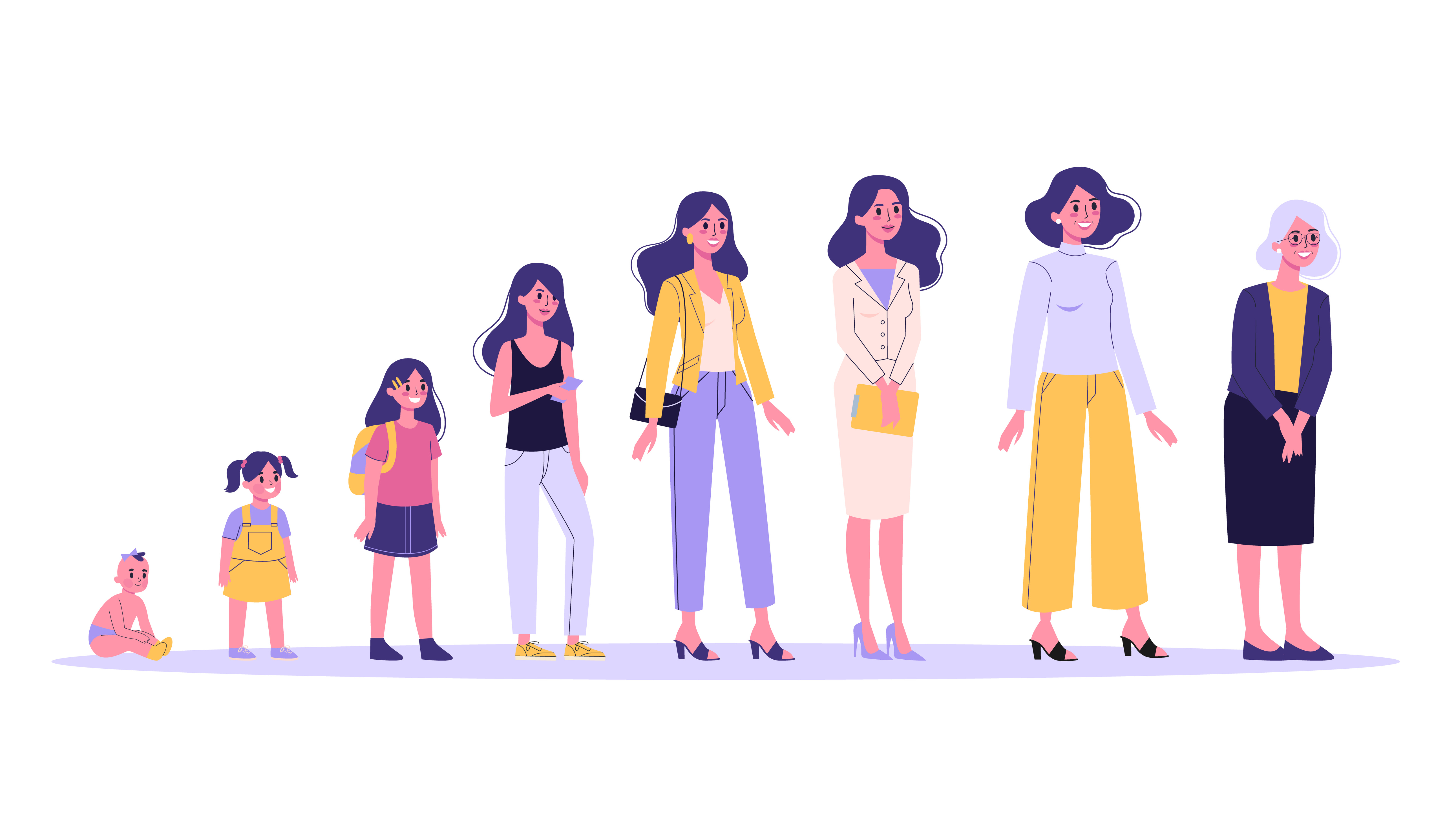Age
Age may not be the first protected characteristic that we think about affecting peoples’ experience and career prospects in academia, but evidence suggests that bias can exist.
Let’s talk about age
The Equality Act
Age is one of nine protected characteristics under the Equality Act. The Equality Act 2010 says you must not be discriminated against because:
- you are (or are not) a certain age or in a certain age group,
- someone thinks you are (or are not) a specific age or age group (this is known as discrimination by deception),
- you are connected to someone of a specific age or age group (this is known as discrimination by association).
Talking about age
It is best to only refer to age if it’s relevant. Avoid general terms, such as ‘the elderly’ or ‘the young’ as these imply that people of certain age groups or generations are a homogenous group, failing to recognise people’s individuality. Instead, you should say: ‘elderly person’, ‘young person’ or specify the age group, such as ‘over-65s’. You should also avoid using terms ‘girls’ or ‘boys’ when referring to your colleagues as these words typically relate to young children, and can feel patronising or demeaning. Instead, simply refer to them as your colleagues.

Age and ageism
What is ageism?
Ageism is age discrimination. Generally, in the workplace, it can happen at and affect anyone at any age, but it is more common at the younger and older age ranges, particularly under 25 and over 50.
Stereotypes and bias
Ageism is fuelled by stereotypes. For example, older adults may be perceived to be tired and stuck in their ways, while younger people can be perceived as unreliable, or lacking in skills and knowledge.
Stereotypes and biases can be harmful to a person. For example, they can affect career progression, cause imposter syndrome, and reduce motivation and confidence. Younger people may be overlooked for promotions, and be given all the menial tasks to do – this is known as reverse ageism. In constrast older colleagues may be seen to have an obsolete set of skills. Older colleagues tend to have more positive perceptions of other older colleagues and tend to view younger workers as less motivated. The impacts of ageism can appear to be positive for one generation, while negatively impacting another.
Age in academia and research
Impact on research
Ageism can also be detrimental for research quality. Lots of studies have found that diversity in the workplace brings a range of benefits. A diverse team can bring new perspectives, encourage a collaborative environment, creative a problem-solving atmosphere and result in better research productivity.
Wellcome hosted a survey into experiences of research culture which discusses the positive impact on research and its culture because of diversity within teams. If a team consists only of members of certain age groups, the team risks missing out on talented people who could bring valuable contributions from any age. Treating all team members equally leads to a satisfied team who all feel respected and valued, regardless of their age or indeed another characteristic.
What does ageism in the research environment look like?
- Overlooking either older or younger workers for professional development. For example, only giving opportunities to attend conferences and training workshops to certain age groups.
- Being left out of meetings or social events, because of age-based assumptions.
- Making comments and remarks about age. This may look playful and friendly, but could be micro- or macro-aggressive.
What actions can you take?
What actions can we all take? As a researcher, research enabler or leader in research
- Do not make assumptions based on age. Don’t assume or determine someone’s abilities based on their age - people have diverse career paths and expertise. For example, don’t assume a younger colleague may not have experience.
- Call out inappropriate comments. Ageist comments from individuals that might not think themselves to have an age bias could come across as micro-aggressive or sarcastic behaviour. They are often in passing comments, for example, questioning an older colleague’s knowledge on the computer, or calling a younger colleague inexperienced.
What additional actions can you take as a leader in research?
- Check your biases. Do you always ask the younger members of your team for help with technical issues as you assume that they’ll have more tech knowledge? What pre-conceptions do you have in the recruitment or interview process?
- Get to know your team members. Understand their experience and support them accordingly. Find out what training is available to support colleagues.
- Be inclusive. Ensure any teambuilding or social events are appropriate for everyone, and that all are invited. Arrange a variety of activities.
- Do not make assumptions based on age. Ensure that opportunities to attend conferences and training workshops are offered across age groups – do not assume that an older colleague may no longer be interested in training or careers opportunities.
Learn more and explore

Throughout this page we have linked to articles, studies and books which you can explore to increase your understanding of age and ageism. You may also wish to check out our page about Allyship to help understand the various ways that we can be an ally to support our colleagues and students.
We recognise that not everyone has the same learning styles, so to complement some of the written information and resources listed throughout this section, below there are a range of resource recommendations to engage with, as well some further research articles that may interest you.
The Newcastle University Library site also hosts a guide to highlight useful information around age equality. You can also check out our EDI Toolkit Reading List on the library’s EDI page for a summary of books to engage with around the protected characteristics.
Articles
- Employee Perception of Older Worker’s Motivation in Business, Academia and Government – Calo, Patterson & Decker, 2013
- Ageism in Higher Education: Historical Reasons and Contemporary Age-Friendly Solutions – Montepare, 2020
- Ageism, Job Engagement, Negative Stereotypes, Intergenerational Climate, and Life Satisfaction among Middle-Aged and Older Employees in a University Setting – McConatha et al., 2022
- Ageism, Diversity’s Forgotten Cousin – LinkedIn
- Women in Leadership Face Ageism at Every Age
Books
- This Chair Rocks: A Manifesto Against Ageism – Ashton Applewhite
- Ageism Unmasked: Exploring Age Bias and How to End It – Tracey Gendron
Podcasts
Videos
For Newcastle colleagues and students
Below you will find a list of services and resources available to colleagues and students at Newcastle University. You may find it useful to be aware of these either for yourself or to direct members of your team to.
Training Courses and Workshops
You can access training on the Learning Management System (LMS) that covers the topic of age inclusion and discrimination (ncl login required).
AGE Research Group
The AGE Research Group works to improve lives through world-class research in ageing, sarcopenia and multiple long-term conditions. Based at the Newcastle University Campus for Ageing and Vitality, their interdisciplinary team includes clinicians, epidemiologists, data scientists, and sport and exercise scientists working in partnership with patients and members of the public. Their aim is to translate findings from discovery science into advances in prevention, diagnosis and treatment, with maximum benefit for individuals and for society.
Newcastle University Annual EDI Report
Within Newcastle’s Annual EDI Report, the University reports on the colleague demographic in terms of the nine protected characteristics, including age.

